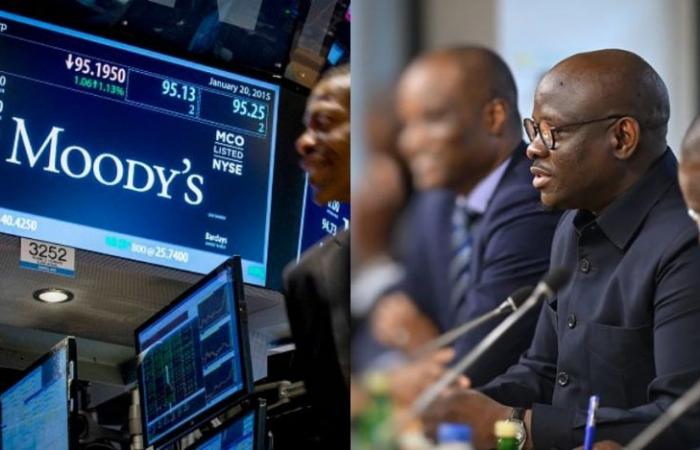Senegal, due to the downgrading of its rating by Moody’s, risks going through a difficult economic situation. Creditors, explains this economist, will take all precautions to ensure that the money is lent under stricter conditions. However, economists predict short-term consequences.
The deterioration of Senegal’s rating is not without consequences, we read on Walf Quotidien this Monday. But they will be short term, economists indicate. “This is precisely the difficulty in relation to the financial market, which risks becoming cautious in the face of Senegal’s demand for credit. There is also the risk of an increase in the interest rate,” explains Meïssa Babou, teacher-researcher at FASEG. According to him, when a country’s rating falls, the latter becomes a dubious client on the financial market. “This makes credit more expensive, but in the medium term. »
→ ALSO READ: PSovereign rating: The first impacts of Senegal’s downgrade by Moody’s
However, the teacher-researcher always indicates, “the consequences will quickly be tempered”. Senegal has committed to reducing the debt from next year, but also to reducing the budget deficit, which is extremely high. The government will increase its resources thanks to new taxation. In addition, with the imminent arrival of oil and gas, an unprecedented growth rate of around 9.1% is projected, he predicts. Meïssa Babou hopes that this apprehension of the financial markets will fade, thus allowing Senegal to regain its credibility.
According to Souleymane Keïta, teacher-researcher at FASEG, Moody’s rating will allow the new authorities to work on solid foundations, because the economic market abhors illusions. “In the short term, the market will punish Senegal. But in the long term, it will react positively, because we will know that the economy is stable,” he says. According to him, the new regime expected this deterioration, because there were two possible choices: continue to rely on false figures or tell the truth. “It’s normal for the markets to react, because the next day, Senegal lost 2% of its obligations on the financial market,” maintains Meïssa Babou.
→ ALSO READ: Senegal’s rating revised downward, the government’s response to Moody’s
For economist Magaye Gaye, the effects are mixed. He recalls that last May, Standard and Poor’s (S&P) downgraded France’s rating from “AA” to “AA-”. This did not prevent France from continuing its debt policy. According to him, Senegal should not be overly worried, because serious investment funds, banks or hedge funds are not based only on the rating of an agency, but also on the intrinsic strengths of the economies concerned. . In his opinion, Senegal has a real international status that no bilateral or multilateral investor can ignore.
Cheikh Diba, Minister of Finance and Budget, will have a lot to do in the coming days to raise funds on the international market. However, the outlook is encouraging for several reasons, according to Magaye Gaye. He cites in particular the discovery of significant oil and gas deposits, as well as the launch of the reference project this October, which should finally offer Senegal’s partners better visibility on the economic policies to be implemented.
→ ALSO READ: Budget crisis in Senegal: Moody’s announces bad news for Senegal






